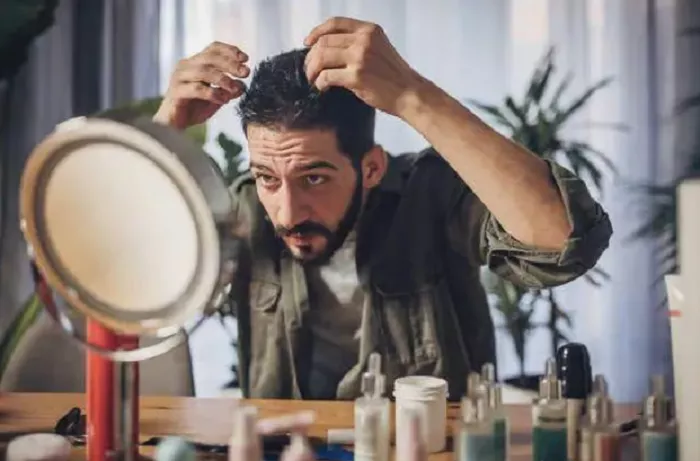New research estimates that around 2.6 million men in the UK use hair gel to style their hair. The popular product works by using polymers to form a network that holds hair in place once it dries. It’s used by both men and women to keep hairstyles in shape throughout the day.
However, questions about its impact on hair and scalp health have long sparked debate. On platforms like Reddit, users have asked whether daily use of hair gel or pomade could lead to hair loss.
Dr. Abdulaziz Balwi, a top hair surgeon at Elithair Clinic—the world’s largest hair loss clinic—explains that while hair gel does not directly cause hair loss, how it’s used can matter.
“Hair gel itself doesn’t cause hair loss,” he said. “But if it isn’t properly washed out, product buildup can lead to scalp irritation or inflammation. In rare cases, this might affect hair health.” According to Dr. Balwi, when buildup clogs hair follicles, it may cause temporary hair thinning. Once the scalp is clean and healthy again, normal hair growth should return.
To avoid this, he recommends regularly washing both the scalp and hair. Hair gel can trap sebum, the scalp’s natural oil, which makes buildup worse if not removed. A good hair care routine should include clarifying shampoos with ingredients like tea tree oil, salicylic acid, or zinc. These help remove residue and keep the scalp clean.
At the same time, it’s best to avoid shampoos with sulfates and silicones. Sulfates can strip the scalp of moisture, and some silicones leave residue behind. Although water-soluble silicones are safer, avoiding them completely is often a better choice. Dr. Balwi also warns against overwashing. “For most people, washing two to three times per week is enough. But if you use a lot of gel, you may need to wash more often,” he said.
Styling Tips to Prevent Hair Damage
Dr. Balwi also warns that hair gel can worsen traction alopecia if it’s used to hold tight hairstyles. This condition happens when hair is pulled too tightly for long periods, weakening follicles and causing hairline thinning or breakage.
“Hair gel can also dry out hair,” he added. Many gels contain short-chain alcohols like ethanol or isopropyl alcohol, which pull moisture from the hair and leave it brittle. Choosing alcohol-free gels is a better option. People who use gel often should use hydrating treatments like hair masks or oils with vitamin E or argan oil to keep hair moisturized.
What to Do If You Notice Hair Loss
If you see signs of traction alopecia—like thinning hair near the temples or hairline—it’s important to stop using tight hairstyles and limit styling products. A healthy diet can also support regrowth. Foods rich in iron, zinc, biotin, omega-3 fatty acids, and protein—like leafy greens, eggs, lean meats, fatty fish, and legumes—are especially helpful.
The Bottom Line
Hair gel, when used properly, is safe and doesn’t directly cause hair loss. But it’s important to keep the scalp clean, avoid harsh ingredients, and reduce tension on the hair to keep it healthy in the long term.
Related topics:


